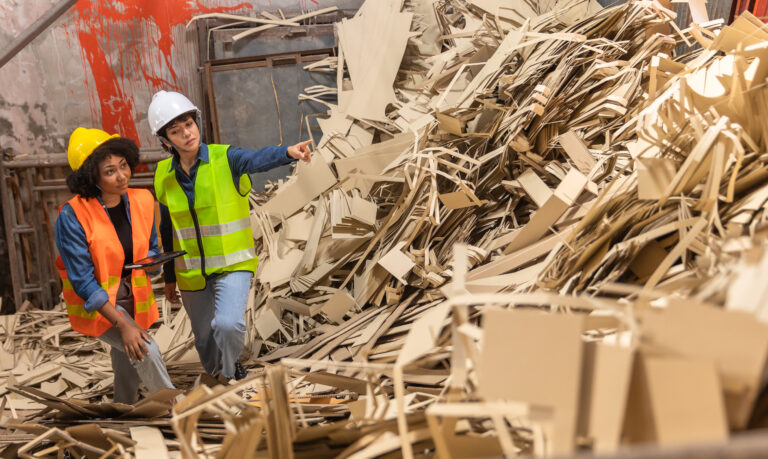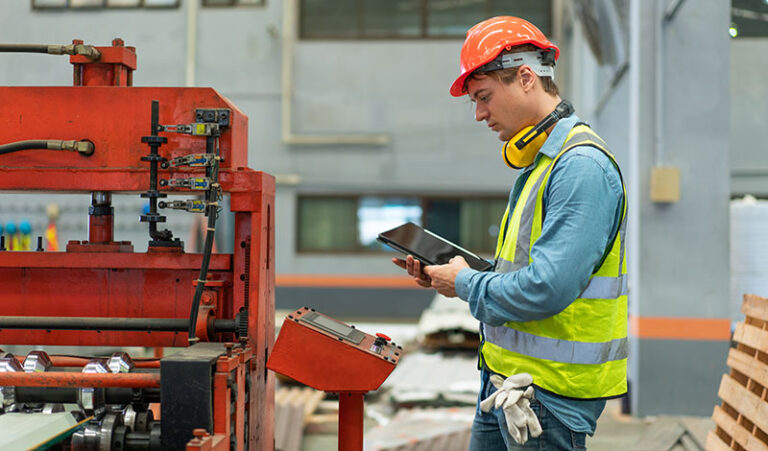
Manufacturing has become one of the largest contributors to waste generation, producing an astronomical amount of waste every year. This is becoming increasingly concerning in light of growing concerns over environmental sustainability.
According to studies, manufacturing waste accounts for over 10% of the global GDP, while specific industries such as food processing are known to generate a significant amount of waste. Furthermore, product packaging alone accounts for a staggering 40% of all plastic usage.
Clearly, there is a pressing need to reduce the amount of waste being generated in manufacturing processes. Manufacturers can reduce environmental impact and work towards sustainability by implementing measures to minimize waste generation.
As a leading provider of industrial solutions, PEC has a significant role to play in addressing the issue of waste in the manufacturing sector. Our expertise puts us in a prime position to help our clients implement innovative strategies to reduce waste in their operations.
We leverage our technological capabilities and experience to offer our clients a number of solutions that can help reduce waste and cut costs. These include optimizing production processes, switching to more efficient machines, and improving transportation strategies.
The manufacturing process is a complicated and intricate operation that involves many different stages. From sourcing raw materials to packaging finished goods, there are numerous opportunities for waste management. One of the most common sources of waste is product packaging.
Excessive or unnecessary packaging can contribute to environmental harm and increase costs for manufacturers. Another area of focus for waste reduction is manufacturing itself. Streamlining and optimizing production processes can help reduce manufacturing waste and save resources, ultimately benefiting the bottom line.
Proper waste disposal is also an important consideration for manufacturers. They must comply with rules and regulations in order to safely dispose of waste materials. Effective supply chain and inventory management software can play a key role in managing the manufacturing process and minimizing waste.
By fine-tuning inventory levels and closely monitoring the intricacies of the supply chain, businesses can effectively minimize manufacturing waste. Thereby, streamlining the production process and bolstering overall efficiency. This comprehensive approach enables organizations to strike an optimal balance, maximizing resource utilization while minimizing environmental impact.
The consequences of waste in manufacturing go well beyond the loss of materials and products. The environmental impacts of waste in manufacturing are severe and can affect the world we live in. The financial implications of waste are also significant and not limited to the cost of material waste.
The overall cost of waste includes factors like disposal, cleanup, and legal violations. It can be challenging to estimate the true cost of waste. This is because it is often buried within a company’s bottom line and is not easily detected.
However, the financial impact of waste is clear. Companies that limit waste in their manufacturing processes experience greater profitability than those that don’t. Therefore, it is vital for companies to address waste at every stage of the manufacturing process. This is true for the benefit of both the environment and their bottom line.

The issue of waste in the manufacturing sector goes beyond the impact it has on the environment. The financial implications of waste are also significant. Companies lose a considerable amount of money due to inefficiencies in the production process.
Waste can also lead to increased disposal costs and potential fines for non-compliance with environmental regulations. When considering the financial aspect of waste, it becomes evident that reducing waste isn’t only environmentally responsible but also financially beneficial.
With resource, energy, and raw material costs rising, minimizing waste is crucial for businesses. Recognizing the link between waste and a company’s bottom line is vital for implementing effective strategies that reduce the impact of manufacturing on the environment and economy.
Precision and efficiency are at the core of PEC’s services, from handling large-scale industrial projects to managing full plant relocations. These principles not only ensure the success of our projects but also translate into our waste reduction strategies. Precision means minimizing material usage and waste, while efficiency involves streamlining processes to reduce energy consumption and carbon footprint.
PEC understands that waste reduction is as much about process optimization as it is about material usage. Therefore, we also offer our clients comprehensive solutions for energy-efficient practices, which go hand in hand with waste reduction. By incorporating renewable energy sources and reducing energy consumption, we help our clients enhance their sustainability efforts.
As society continues to become more environmentally conscious, sustainable practices in manufacturing have become increasingly important. One of the most promising solutions to reducing waste in manufacturing is the use of recyclable materials.
By replacing traditional packaging materials with recyclable alternatives, companies can drastically decrease the amount of waste produced during the manufacturing process. Using recyclable materials, reducing packaging, and incorporating alternative materials can significantly minimize waste.
These actions not only benefit the environment but also improve a company’s image and demonstrate a commitment to sustainable practices. As the manufacturing industry embraces recyclable materials and reduced packaging, a greener future awaits us all.

Finished goods are the manufacturing end goal, but they are connected to the waste produced in the process. By changing our perspective, waste becomes a valuable resource that can be repurposed and recycled. However, by shifting our perspective, we can view waste not as something to be disposed of, but as a valuable resource that can be repurposed and recycled.
Embracing and adopting this new mindset of minimizing waste and fostering sustainability is of utmost importance, especially in the current times. With the emergence of innovative waste exchange programs, which facilitate the repurposing of byproducts, individuals and organizations are empowered to make a significant impact in reducing environmental harm and promoting a circular economy.
With this approach, manufacturers can not only minimize their environmental impact but also improve their bottom line by finding innovative ways to utilize every aspect of their production process. Embracing the concept of finished goods as resources rather than just waste products allows for a new perspective on sustainability and efficiency in manufacturing.
Manufacturing companies have a responsibility to reduce their waste in order to minimize their impact on the environment and improve their profitability. With the cost of raw materials constantly rising and customers increasingly demanding sustainable products, it is important to explore how to reduce material waste in manufacturing.
One effective strategy is implementing lean production, which involves eliminating waste by streamlining processes and improving efficiency. Recycling is another key component of reducing waste, as it reduces the need for new raw materials while also diverting waste from landfills.
Additionally, implementing energy-efficient practices, such as using renewable energy sources and reducing energy consumption, can further enhance sustainability efforts. By reducing waste in manufacturing, companies can not only help protect the environment but also improve their bottom line and satisfy their customers’ growing demand for sustainable products.
When you choose to work with PEC, you’re not just choosing a contractor; you’re choosing a partner committed to sustainability and efficient resource management. Our innovative solutions in waste reduction help clients meet their production schedules without sacrificing safety or environmental standards.
PEC’s role in reducing waste in manufacturing is significant and multifaceted. Our strategic approach, combined with our technical expertise, provides our clients with the tools they need to tackle waste reduction head-on, contributing to a greener and more efficient manufacturing sector. Contact our team today to learn more about how PEC can help you reduce waste in production and make your business more sustainable.